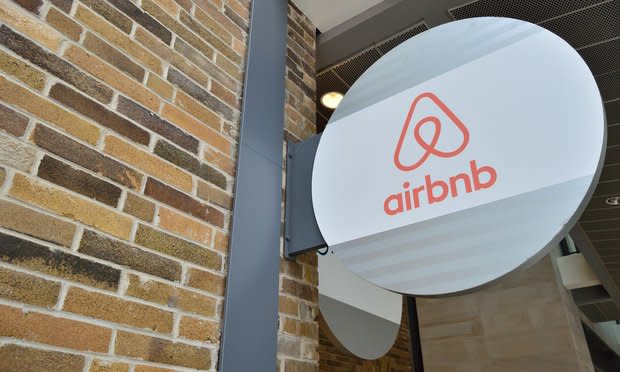DeSantis Targets Airbnb Over West Bank Policy

Airbnb office
Don’t expect Gov. Ron DeSantis to plan an Airbnb stay as part of his first foreign trip as the state’s top executive.
The governor announced Tuesday that Florida employees will no longer be reimbursed for Airbnb stays while traveling, as the state considers economic sanctions over the home-sharing platform’s decision against listing properties in the West Bank, an area that is a major flash point in Israeli-Palestinian relations.
“My hope is that Airbnb will rescind that policy,” DeSantis said during an appearance at the Jewish Federation of South Palm Beach County in Boca Raton. “I don’t think they quite understood what they were getting into on this.”
Claiming a “moral obligation” to oppose the Airbnb property-listing policy for the West Bank, DeSantis said the State Board of Administration will determine by the end of this month if Airbnb is subject to a new Florida law that prohibits state investment in companies that boycott Israel.
The State Board of Administration, comprised of DeSantis, Attorney General Ashley Moody and Chief Financial Officer Jimmy Patronis, oversees the investments of the state’s pension program.
On Tuesday, Airbnb issued a statement that it “unequivocally rejected” the Boycott, Divestment, Sanctions, or “BDS,” movement targeting Israel in support of Palestinians. But it made no mention if the policy about hosts in the West Bank will change.
“We have worked with the Florida State Board of Administration on this matter, we remain committed to the more than 45,000 Airbnb hosts in Florida who share their homes with over 4.5 million visitors, and we’ll continue to do all we can to support our community,” the company said in a statement.
The company noted it has more than 20,000 Israeli hosts, with the decision not to allow hosts in “the settlements in the West Bank” impacting about 200 listings.
“Airbnb has previously prevented hosts from accepting reservations in other lands with unique dynamics, including Crimea — where the decision impacted more than 4,000 listings,” the company release said.
DeSantis said the company, which has been working to go public later this year, has reached out indirectly to his administration, as well as to the Israeli government and may have realized it made a mistake. But the policy hasn’t changed.
“All I can do is take the action that I think the people of Florida want because of our laws,” DeSantis said. “I think more states will follow and, hopefully, that will end up getting Airbnb where they need to be. But you know what they say, if you can’t make them see the light, make them feel the heat.”
DeSantis made similar critical comments in November when Airbnb delisted the West Bank properties due to the long-running dispute over the territory. But as only the governor-elect at the time, he couldn’t direct any actions.
Last year, U.S. Sen. Rick Scott, then the governor, signed into law a bill (HB 545) that expanded a prohibition on state and local governments awarding contracts to companies that boycott Israel. The law accompanied $2 million that was included in the state budget for security and counterterrorism upgrades — such as video cameras, fences, bulletproof glass and alarm systems — at Jewish day schools.
As part of the state review involving Airbnb, DeSantis has asked Moody to determine if the company’s policy violates the civil rights of Floridians who own property in the West Bank and want to use the service.
DeSantis also said he plans to ask state lawmakers this year to maintain at least $2 million in funding for security at Jewish day schools and that he will travel to Israel — his first foreign trip as governor — after the 2019 legislative session wraps in May.
The trip is intended to expand commercial ties, boost tourism to Central Florida and explore research to address the state’s red tide outbreaks, DeSantis said.
Jim Turner reports for the News Service of Florida.


